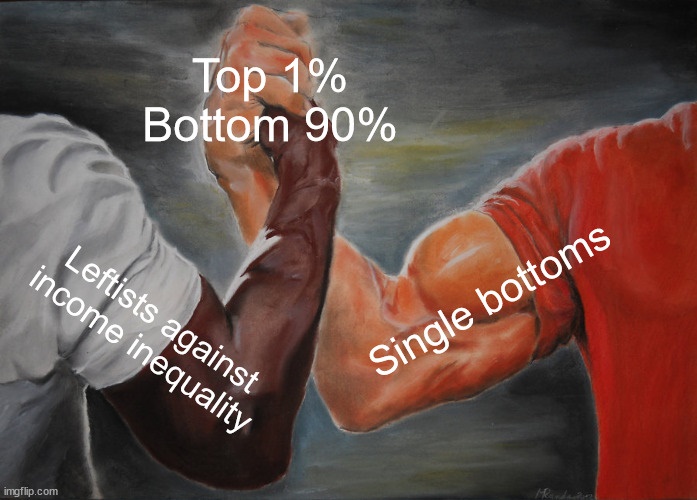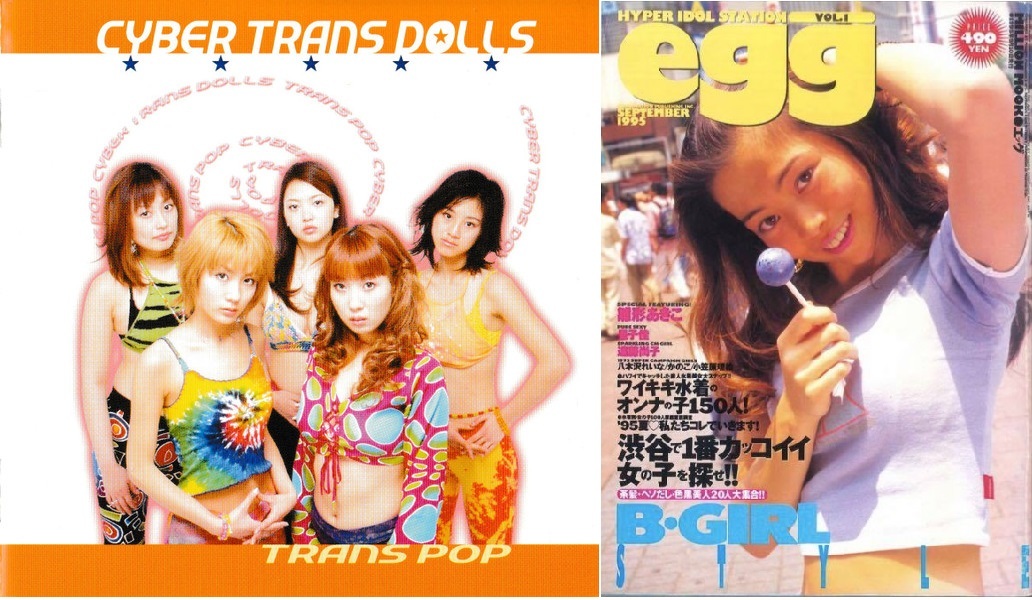Sorry to nitpick, but there's no way there's only a 5 inch height difference between them. Once again, someone has been caught using Grindr inches.
The most tragic thing about this is that she isn't even using the word breedable correctly. The traditional meaning of the word, which she is trying to gatekeep, means to produce offspring. Humans breed by procreating with another human to create human children. Vaginas do not breed with other vaginas to create vagina children, so vaginas are not breedable.
Even if you think the slang form of the word breedable this guy used is invalid, he's still breedable as long as he's capable of impregnating someone, even if he has no desire to do so.
When I had sex ed in the late 90's, I was shown videos with real (but obviously non-sexualized) nudity. I don't remember there being any controversy about that at all, and I went to a Christian school (Anglican).
I personally had one or two issues with the video you used. I'm not sure they were being literal when they said は means "as for". は doesn't have any meaning, it has a function. Translating it this way can help people understand how は works within the sentence, but I've also seen it confuse people too. I once saw a post from someone who said 私は難しい incorrectly thinking it meant "It's difficult for me."
Some of the things you mentioned also weren't accurate.
a) Generally speaking, cats are liked [猫が好きだ] b) As for me, cats are liked (-> I like cats) [私は猫が好きだ]
Sentence B is correct. Sentence A however is just sentence B with the subject/topic omitted. You'll have to infer the it from the context, but it will be "I" in most cases. I don't think there will be any context in which it will be understood as cats being generally liked by everyone.
a) Generally speaking, as for cats, everything about cats is liked. [猫は好きだ] c) As for me, as for cats, everything about cats is liked. (-> I like cats) [私は猫は好きだ]
There are a few issues here that are a little misleading. は好き can be used like this, but in my experience of looking at sentence from native Japanese speakers, it's mostly only used in the following three ways:
- Comparisons, for example 私は猫は好きですが、犬は好きではありません (I like cats, but I don't like dogs.)
- Together with a conjunction like ですが、ですけど、でも, for example 私は猫は好きですが、飼ったことはありません (I do like cats, but I've never had one.)
- Together with になる, for example 私は猫は好きになれませんでした (I wasn't able to become a cat lover.)
Number 2 and 3 can be replaced with が, but は is preferred for number 1.
私は猫が好き also doesn't quite mean you like everything about cats. It's the same as saying you like cats in English, you're making a general statement without specificially identifying what you like about them. I like everything about cats is closer to 猫の事が好きです or 猫の全てが好きです.
I thought maybe it was supposed to say Americano, but it's not the same. There's an explanation here. It's made from light roasted beans, and they say it most likely got it's name from Americans in post-war Japan brewing coffee with lots of water or diluting it further before drinking.
I'm not American, but the name sounds a little judgemental to me.
I'm not a native speaker, but I've studied Japanese for more than a decade. There are no singular, non-gendered third person pronouns, so there is no equivalent of a singular they. Although there is an equivalent of a plural they, it's not completely gender neutral. The equivalent of him is kare, and the equivalent of her is kanojo. You can make them plural by ending "ra" on to the end of them. Kanojora is used only for groups of women/girls, and karera can be used for a group of men/boys, or a mixed-gender group. That makes the root meaning of karera male coded even if it's used in a gender neutral manner, so non-binary people might prefer not to use that.
This shouldn't however be a major issue for Japanese speakers, as first person pronouns are the only ones that are in frequent use. Unlike English, where you use pronouns to avoid repitition, you can completely omit them in Japanese, so instead of asking "Has Asami done her homework?" in English, you would ask "Has Asami done homework?" It's also preferable to use names instead of 2nd/3rd person pronouns. Instead of asking "How about you?", you'd ask "How about (person's name)?" It's probably much easier for a non-binary person to ask that no pronouns be used for them
!japaneselanguage@sopuli.xyz is more active. It's a community for discussion of the Japanese language rather than just learning and study methods, but plenty of the posts are about learning.
Why were they so sure the penguins weren't just roomates?
I knew I was gay when I was 12. I've only ever been attracted to men, and I'll be 40 next week. If you think you're gay, you're very likely correct. Some people's sexualities are fluid, so you may also be "incorrect". Either way, it doesn't really matter. Life is not a quiz. You're under no obligation to give the "correct answer" first time, and it's not too late if you suddenly realize you gave the "incorrect answer" when you're in your twenties, thirties, or even older.
Yes, sometimes labels are too constrictive, and not perfect for everyone. But when people say queer people are obsessed with labels, or "I'm not cis; I'm normal", what they're almost certainly taking issue with is non-cisheteronormativity being recognized and validated. When the only labels are normal and not normal, it's much easier to silence and marginalize those you believe are outside the norm.
And even if you do "grow out of it," so what? Why do we need to get everything right the first time? We can give ourselves the chance to explore and move on with our lives if something isn't for us.




There's no evidence that it made them gay. Maybe the demon provided a matchmaking service for closeted medieval queers.